- Home
- Peter S. Beagle
Return
Return Read online
An Innkeeper’s World Story
Peter S. Beagle
Return Copyright © 2010
by Avicenna Development Corporation.
All rights reserved.
Dust jacket and interior illustrations Copyright © 2010
by Maurizio Manzieri.
All rights reserved.
Interior design Copyright © 2010
by Desert Isle Design, LLC.
All rights reserved.
Electronic Edition
ISBN
9781596064492
Subterranean Press
PO Box 190106
Burton, MI 48519
www.subterraneanpress.com
The good thing—almost comforting, in a singular way—about not ever being able to shake the Hunters for very long is that you needn’t bother trying to outthink them; you can concentrate instead on pure survival. Reaching a sizable clearing, with good sight-lines on all sides, I tethered my mare and sat down on a stump with one leg tucked under me, then unslung the big old bow I really ought to replace and began making a public production of changing the string and studying the exact fletching of my arrows. I hummed as I worked—I think it was Sirit Byar’s ballad, “The Juggler,” because I always liked that song, but perhaps not. Hard to remember now.
I was deliberately exposing myself, gambling that the Hunters would thereupon credit me with some demonically complex ambush scheme of my own. Any other class of assassin would have responded to this gambit with an arrow—most probably poisoned—slicing out of a thicket to make an end of all my plans and memories together. But I knew the Hunters. They would not attack from hiding: it was not ever in them to have their skills go unrecognized or unacknowledged by their quarry. The only real question, then, was how many seconds I might have in which to react to their reactions. Not for the first time I regretted my inability to learn to throw a tiny dagger like the one my friend Lal always carries in her left boot. I practice, but it doesn’t help at all.
The first Hunter simply came stalking across the clearing, hands empty and open, as they most often approach. This was not as I would have had it. I prefer them armed, since anything that clutters and slows those hands in the slightest is my friend.
He smiled warmly at me and purred with what I am sure was genuine affection. “Soukyan, all alone, all unarmed. I can help?” His hands continued to hang at his sides, to all appearances limp, but in fact lethal and pitiless. I paid them no attention, nor did I ever look quite directly into his stone-colored eyes. I was watching his feet.
“I am tired,” I said, as simply and flatly as I could make it come out. “There’s no beast will not turn at bay at the last, as well you know. Consider me bayed, then.”
He laughed outright, a charmingly light and boyish sound. “While you live, danger, danger. Soukyan the betrayer—I know you of old and old.” Yet for all his confident air, he was puzzled by my behavior; I could see it in the way his feet kept shifting in small movements that kept them from a firm, constant stance. He asked again, plainly expecting no response, “Cunning Soukyan, what has he in mind?”
I spoke slowly, almost hesitantly, as though the thought were just now forming with the words. “I was just thinking, sitting here—why should the lamb always wait on the wolf’s decision? Where have the gods decreed that the hunted may never strike first?”
And with that last word I was up, pushing off the leg apparently immobilized by my body’s weight, then snapping my half-unstrung bow like a whip. The bit of palmed lead I had squeezed around the endknot worked perfectly, causing the waxed string to curl tightly around the Hunter’s neck and catch. I pulled and set him stumbling toward me, desperately off-balance, clawing at his throat, with no hand free to strike out at me. To do him all justice, he almost had the bowstring loose before I broke his neck. I was lowering him gently to the ground when my mare’s frightened whinny set me spinning to face the charge of the other one.
And here…here was an unusual thing. The second Hunter was not upon me: he was forty feet away, at the clearing’s edge, struggling with the third.
Ah. You do not comprehend. In that moment, no more did I. In truth I would have been less startled by a black sunrise.
I was very young the first time that I faced a pair of Hunters, so soon after taking my leave of that place. They were rumors made all too dangerous flesh, and as soon as they were both dead—a Goro slew the first, and I killed the second only by the luck of his arrogance—I blithely assumed that I was free of them and could go my way without forever looking behind me by day, or waking on my feet in the night. What I did not know then was that there is always a third: the leader, moving ever apart from the other two, and more dangerous than both of them together. The exact moment of my education in this regard was personally memorable, but unimportant. I survived it, a fortune well beyond my deserving: the still-tender spot on the back of my head reminds me yet that the gods must have a certain fond indulgence for ignorant children. And over time I continued to survive, the passages of my life measured by a kind of Hunter clockwork. For while they were not perfect killers, those chuckling little people, they never left your trail until all three were dead; and then, as I discovered, after some time there would be three more following in their tracks, and three more after that, on and on.
But the third stands ever apart, and the second is always more cautious than the first. Through years, nearly decades, it had always been so. Until now. Here in this forest clearing I saw something I could not have imagined, for the third Hunter was clearly restraining the second.
It was only for a moment, but unmistakable. Then the second broke free from his fellow’s grasp—I saw blood fly from his forearm—and he came for me.
No gentle, smiling assassin, this one, but an animal mad and blind with rage. He came flying and hissing at me, swift as a striking falcon, those deadly hands seemingly gutting the air. I met him with an arrow in each of my own hands, and he was dead before he hit the ground. It had all taken four seconds, at most. From the time I’d first come to my feet, fifteen.
I looked into the eyes of the third Hunter then, seeing nothing at all and having no idea what might possibly come next. He held my gaze for a long moment, then backed three steps into the trees, turned, and was gone.
And I went after him, which was more foolish, and by a far longer chalk, than anything I had done since I was old and experienced enough to know better. Hunters are hunters, not fugitives: they find you when it suits their purpose, never yours. You do not plunge off blindly into the woods in pursuit of one—especially not a third one, for all sakes’ sake. But I had killed two within a quarter of a minute, and I admit I was as drunk with it as a much younger fool would have been.
I will say in my defense that I was aware of, and alarmed by, the ease with which I followed the trail of the third Hunter. I am not the best of trackers—Lal is far better, and the fox is as much her superior as she is mine—but at least I know this, and never imagine otherwise. Yet I was having no least difficulty in my pursuit: there were footprints, torn vines, broken twigs and branches—everything but signposts every few feet to point the way. Again to do myself justice, I went slowly, fully expecting a strike from every possible direction, including the trees. But for hours there was no sign of the Hunter himself, only of his strange, stumbling passage, until I pushed through a tangle of underbrush and came abruptly upon what looked like his sprawled corpse, face down in the dirt and leaves. I watched for half a dozen breaths and he did not stir, but even so I held my dagger at the ready as I moved towards him.
He was lying on his face, but as I knelt he turned and smiled up at me: not in the sweetly pitiless way that is the last mortal sight so many have ever seen, but with something resembling actual warmth. All Hunters have t
he same light, eerily cheerful voices, as identical as though they had all been issued them in training, but this voice was heavy with death, which is a sound I know as well as any. He said, “Fitting…fitting it is…wicked Soukyan—turncoat, betrayer. Fitting…”
He coughed, but I saw no blood, nor any wound on him, except for the gash on his forearm, suffered in the fight to restrain the second Hunter from a suicidal attack on me. I replied, “I am no betrayer. I have wished only to live free of that place, and have never been allowed that single mercy. So I do what I must, without joy. What plagues you now? I killed your fellows, but I have not touched you.” Which was true enough, yet he was certainly dying—it was plain in his smile, as well as his voice. I said, awkwardly, “If you have a message for friends, family, I will see to it,” but he laughed then, and I did not go on. As far as I had ever known Hunters had no friends, only each other. He was entirely right to laugh.
But that took the last of his strength, whatever had drained it away so completely. He managed only to mumble, “The Tree fails…” I tried to coax more out of him, but what he whispered next I could not hear, and then he was gone. I stayed kneeling beside him for a while.
It took a long time to carry him back to the clearing, and longer still to bury all three of them, even with the soil still soft from recent rains. There are those who wouldn’t bother, but life on the run has taught me to clean up after myself; found remains mean more trouble than they are worth, almost always. I said, “Sunlight on your road” to them when I was done. Then I walked back to where my mare was peacefully cropping such yellow summer grass as she could reach, but I did not mount. I had thinking to do, and none of it at all the sort that I favor.
As a general rule, I have never been overly comfortable with unpredictability. Lal’s own practice is to expect it in most circumstances; and the fox positively revels in it, since he is always likely to be the least predictable factor in any situation. It may seem odd, given all the patterns of the life I have lived since leaving the strange monastery where I was raised, but like a cat I prefer to know the ground before I put foot to it, to find people where and how I left them, and for them to behave as I am accustomed to have them behaving. Absurd, beyond a doubt—no one needs to tell me that, though those two constantly do—but such is my nature. The notion that a Hunter might go mad and struggle wildly with his superior over a chance to get at me, let alone that that same superior should die at my feet, rather than at my hand, slain by something unknown and muttering mysteriously all the while…none of it connected, none of it made any sort of sense. And I need things to make simple bloody sense, which makes me a fool. I know that.
Hunters do not deal in frenzy. Hunters do not ever turn on their own. A Hunter does not simply lie down and cease to breathe, like a poisoned insect. I have been the intimate death of enough of them to know these facts to be inarguable. If it were no longer so—if they who had so tested me were now become as capricious as the rest of this mad world—then everything else I thought I knew had become equally indefinite, and every certainty well worth reconsidering. In which case…
…in which case, returning to that place—as I called it even when I lived there—was unavoidable. All that I had just experienced must surely signify something. I had to know what it was—and only those who had so long ago been my masters and companions, and later my spurned and murderous enemies, would be able to tell me. I was simply going to have to persuade them to do so without dying in the process.
And I knew I would have to go alone. I do not have so many friends that I can afford to waste any.
Here, circumstance was my ally. Lal had made me swear never to return to that place without her and her swordcane, but both of us had shortly after been swept up into separate employments. I had been deep in the north, just short of the Barrens, a long way from the dark woods and swift, cold rivers of my own country, as bodyguard for a wealthy merchant whose fear of assassination extended, justifiably, to very nearly his entire family; consequently I had not seen Lal for almost three years—rumor had her aboard a merchant coaster in the pirate-ridden Straits of Mashaq. As for the fox, who came and went as he chose, he was off on some devious enterprise of his own, which I would walk as far to ignore as he would to keep it from me. With luck my business would be over, for good or ill, before he sought my company again.
I have called it a monastery, that place, for lack of a better word; and in a literal sense the term is perfectly accurate. They do indeed have monks sworn to certain oaths and obediences, and there is a distant, unchanging hierarchy of masters whom my eleven-year-old runaway self had regarded as guests and companions of the gods, if not quite gods themselves. But the ecclesiastical aspect is the very least of what that place was. When it falls at last to ruin and abandon, as it someday will, that debris will still echo with secrets. For secrets, above everything, are the stock in trade of that silken, shadowed fortress where I spent nearly twenty years of my life. They peep from the cracks in the walls; they scuttle in the corners, and shelter in the whisper of the monks’ robes. In my time there, as I learned, there was literally nothing that kings sought to hide, that queens prayed to forget, or the wiliest of officials, church powers and businessmen worked to disguise, that was not known in that place.
I was a boy when I first came there, younger than my age in many ways. I left it—running once more—on the same night that I was finally offered entrance into that hierarchy: not as a monk, but as an initiate, a secret-sharer with a wearisome climb through the ranks ahead of me, but with a possibility of such eventual influence as no peasant-born child like me could have dreamt. Somehow I had judgment enough to turn the proposal down, and to fly for my life less than an hour after its making. The Hunters followed.
To return would be a long journey, and I was grateful to have had money enough for once to bargain for my good young mare, rather than the usual hairy, blunt-fanged churfa; you cannot imagine the pure restfulness of it, especially over such distance as I now contemplated. You do get used to a churfa’s stink and the pacing gait, I will admit, but never to the screaming. And I had no desire to announce my arrival earlier than I had to.
As for provisioning I needed no more than my bow, my flint and steel, a little dried meat, and the trimoira dagger, sharp as a winter breath, that I had removed from a lady who took rejection poorly. I am not especially adept with either points or edges, but I thought the dagger might come in useful at least for cooking. Neither Lal nor I travel heavily armed: my experience is that if you need a wagonload of weaponry to feel secure, you are likely doomed before your bespoke sword clears the scabbard. Good sense, steady nerves, and a healthy lack of pride will carry you a deal further.
I had no plan—no strategy at all. I mention this because Lal, to this day, remains obsessed with the notion that I invariably set off blindly into the unknown, improvising as I go, which is simply not true. But in this case, my reasoning ran, two decades of plotting and speculating and reasoning had brought me no closer to ridding myself of the Hunters, nor of that place’s lingering hold on me. Therefore I would see what proximity would do. My idea was to approach boldly and innocently, in the guise of a benighted traveler: a tall, brown woman whom I had not been in very many years. Not since Corcorua, really, not since the inn, the old Gaff and Slasher, and the wizard Lal always called my friend and I the man who laughs, who taught me the trick…not since that time had I again needed to be that woman. However altered or reduced that place might or might not be, it was still the dwelling of certain persons of great power and consequence. Soukyan the hunted would surely never get within two days’ ride of that wicked old house—but a stranger, lost and confused in strange country?
Originally I had been traveling south on the coast road, on my way to another chance of bodyguarding in Sai’surak, whose sole attraction was the prospect of a warm winter. When I became aware of the Hunters trailing me, I had turned west—just before Leishai, it was—and now, after our encounter, I went sou
thwest on farmcart roads and goat paths, doing all I knew to avoid notice. I did not know the names of any of the hamlets through which I slipped between midnight and dawn; nor did I recognize any of the songs I heard ploughboys whistling behind their red oxen. Often I could have used the fox’s yappingly derisive company, or even one of Lal’s endless, tuneless chants from her homeland. Yet I stayed alert as I rode, nor ever slept straight through a night, but took my rest in fragments and splinters, for it was hard to believe that the disappearance of three Hunters at once would not have set the shadows in that place ringing like temple bells. I raided orchards and kitchen gardens at midnight, killed whatever I could cook over the small, smokeless fires that my sister taught me to make, slept in the saddle from time to time, and rode on.
When I judged the moon and stars to be just so—the man who laughs’ directions could be maddeningly casual—I said the spell as I remembered it, and let the woman-guise drift down over me, like a cobweb, letting it happen slowly, so as not to bewilder or frighten my mare. In each pool or stream where we halted to drink, I glimpsed the brown face that was not my own more and more clearly, feeling her presence more and more in my body: an old friend come to call, shy with years at the first, but increasingly at ease to find herself welcome. Hello, old friend.
Her name in the old days had been Nyatenari; it would not serve me now. I must choose another.
Aye, it was tedious journeying, that long road that I plodded back into the past. The further southwest I struck, the more my path was haunted, not by anxiety over my destination, but by steadily intensifying recollections of a boy running in darkness, his chest splitting with pain, his heart hammering with triumph and terror, weeping for his sister and listening for the dogs. I remembered too well.
As I also remembered—rising before me out of the dank mists, like a dark moon, invisible a moment earlier—the walls and spire of that place, with one light showing in the kitchen. Whatever the memory of that solitary light signified for me today, that running boy had never been as overpowered with joy to see anyone or anything. He had burst through the kitchen door, wet with tears, soaked through with sweat and a dead man’s blood, and the cook took him in.

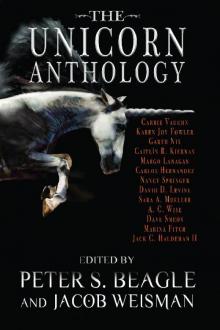 The Unicorn Anthology.indb
The Unicorn Anthology.indb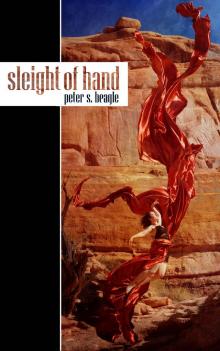 Sleight of Hand
Sleight of Hand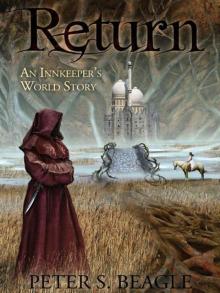 Return
Return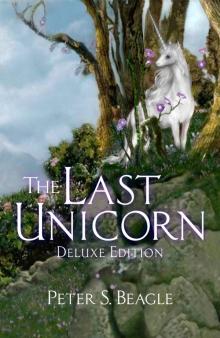 The Last Unicorn
The Last Unicorn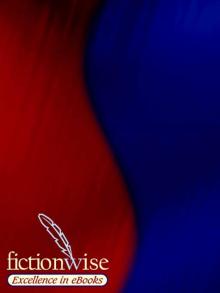 Two Hearts
Two Hearts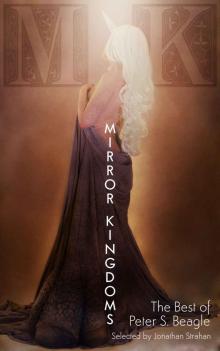 Mirror Kingdoms: The Best of Peter S. Beagle
Mirror Kingdoms: The Best of Peter S. Beagle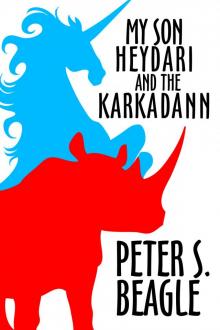 My Son Heydari and the Karkadann
My Son Heydari and the Karkadann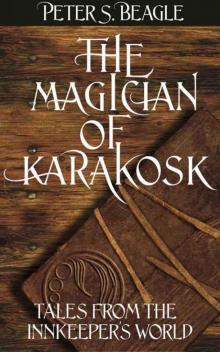 The Magician of Karakosk, and Other Stories
The Magician of Karakosk, and Other Stories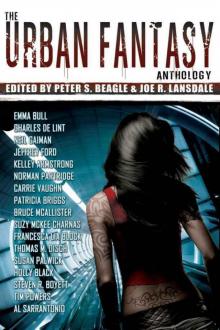 The Urban Fantasy Anthology
The Urban Fantasy Anthology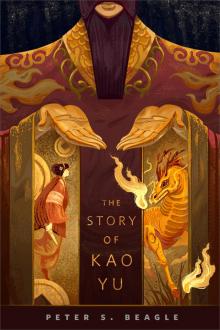 The Story of Kao Yu
The Story of Kao Yu The Karkadann Triangle
The Karkadann Triangle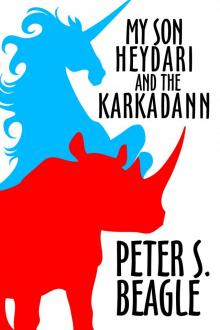 My Son and the Karkadann
My Son and the Karkadann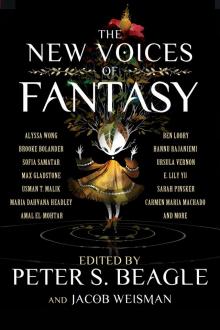 The New Voices of Fantasy
The New Voices of Fantasy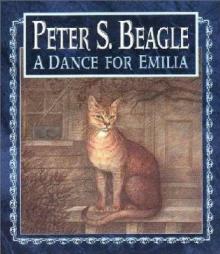 A Dance for Emilia
A Dance for Emilia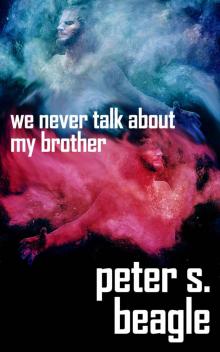 We Never Talk About My Brother
We Never Talk About My Brother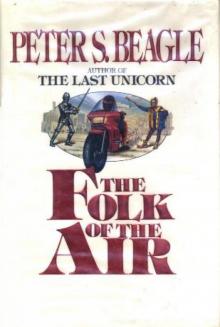 The Folk Of The Air
The Folk Of The Air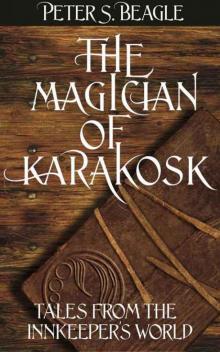 The Magician of Karakosk: Tales from the Innkeeper's World
The Magician of Karakosk: Tales from the Innkeeper's World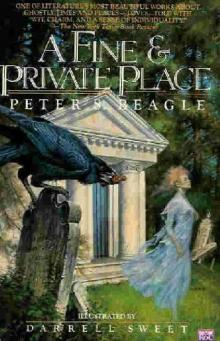 A Fine and Private Place
A Fine and Private Place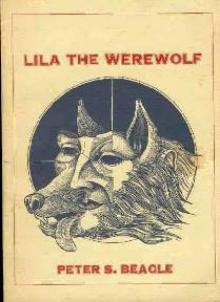 Lila The Werewolf
Lila The Werewolf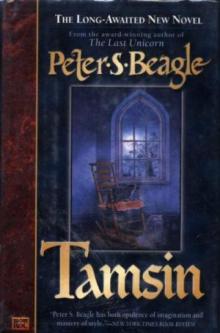 Tamsin
Tamsin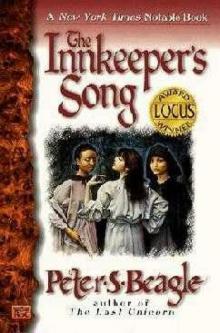 Innkeeper's Song
Innkeeper's Song